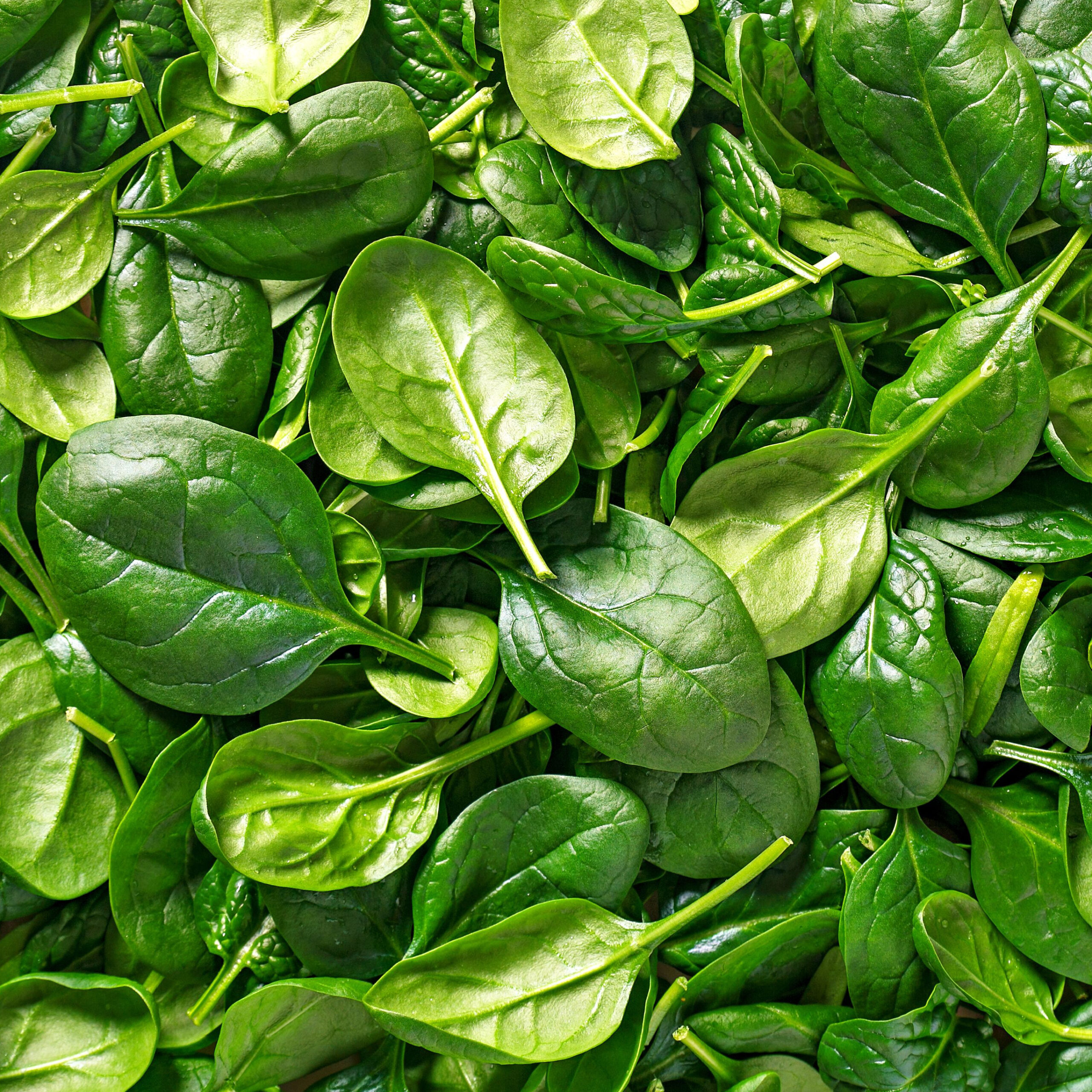
1. Spinach
Spinach, a nutrient-dense leafy green, not only promotes overall health but also plays a significant role in supporting brain function and reducing the risk of cognitive disease. Rich in vitamins, minerals, and antioxidants, spinach offers a myriad of benefits. Feder explains, "Spinach is loaded with fiber and other nutrients including vitamins A, C, K, folic acid, iron, and calcium. The high amount of antioxidants is great for fighting off inflammation throughout the body, including your brain and heart."
Moreover, the abundance of vitamin K in spinach has been directly associated with improvements in cognition and cardiovascular health. Studies have shown that consuming leafy greens like spinach regularly may help slow down age-related cognitive decline and protect against neurodegenerative diseases. So, make sure to incorporate this superfood into your daily meals for a brain-boosting and heart-healthy diet.
2. Blueberries
Blueberries, often hailed as a superfood, are not only delicious but also incredibly beneficial for brain health and reducing the risk of cognitive disease. Packed with antioxidants, these little berries exhibit anti-inflammatory properties that can benefit various aspects of our well-being. Feder emphasizes their significance, stating, "Blueberries are one of the highest antioxidant containing fruits that are also loaded with fiber and other nutrients including vitamin C, A, K, potassium, and manganese. The high amount of antioxidants is great for fighting off inflammation throughout the body, including your brain and heart."
Furthermore, blueberries contain compounds that have been linked to improvements in cognitive function and memory. Regular consumption of blueberries has been associated with slowing down age-related cognitive decline and reducing the risk of neurodegenerative diseases such as Alzheimer's. So, adding a handful of blueberries to your daily diet can be a delicious and effective way to support your brain health.
3. Salmon
Salmon, a fatty fish rich in omega-3 fatty acids, is renowned for its numerous health benefits, including supporting brain function and reducing the risk of cognitive disease. Packed with high-quality protein, antioxidants, and nutrients, salmon is considered a protein superfood. Feder explains, "Salmon is a protein superfood that is very high in healthy fats, antioxidants, and nutrients including B6, B12, selenium, niacin, phosphorous, thiamine, and pantothenic acid."
The omega-3 fatty acids found in salmon play a vital role in supporting cognitive function and maintaining brain health. Regular consumption of omega-3 fatty acids has been associated with improved memory, concentration, and overall brain function. Additionally, salmon's anti-inflammatory properties may help reduce the risk of neurodegenerative diseases such as Alzheimer's. Incorporating salmon into your diet can be a delicious and effective way to nourish your brain and protect against cognitive decline.
4. Avocado
Avocado, often praised for its creamy texture and delicious flavor, is also a powerhouse of nutrients that can support brain health and reduce the risk of cognitive disease. Rich in heart-healthy monounsaturated fats, avocados may contribute to lower cholesterol levels and improved cardiovascular health. Feder highlights its nutritional profile, stating, "Avocado is one of the healthiest fats on the planet. It is very high in monounsaturated fats as well as dietary fiber. It is also a great source of B vitamins, vitamin C, vitamin E, vitamin K, folate, potassium, magnesium, and antioxidants."
Additionally, the high content of vitamins, particularly vitamin K and folate, supports brain health and cognitive function. Studies have suggested that avocados may help improve memory and concentration and reduce the risk of age-related cognitive decline. So, don't hesitate to indulge in this creamy fruit as part of your brain-healthy diet.
5. Greek Yogurt
Greek yogurt is not only delicious but also packed with benefits. It's incredibly beneficial for brain health and reducing the risk of cognitive disease. Loaded with protein and probiotics, Greek yogurt offers a plethora of health benefits. Feder emphasizes its anti-inflammatory properties, stating, "Greek yogurt is loaded with anti-inflammatory properties due to the high amount of probiotics or healthy bacteria."
The probiotics found in Greek yogurt contribute to a healthier digestive system, promoting gut health and nutrient absorption. This, in turn, can help reduce inflammation throughout the body, including the brain and heart. Additionally, Greek yogurt is a great source of protein, which is essential for supporting lean muscle tissue and overall bodily strength. So, start your day with a serving of Greek yogurt to nourish your brain and promote a healthier, happier you.
6. Turmeric
When it comes to healthy spices, turmeric reigns supreme as a potent ally in bolstering cognitive health. Dr. Daidone highlights the benefits of curcumin, turmeric's main compound, stating, "Curcumin may help improve brain function by reducing oxidative stress." This powerful antioxidant property of curcumin plays a pivotal role in protecting brain cells from damage caused by free radicals, thereby supporting cognitive function and reducing the risk of cognitive decline.
Moreover, turmeric's anti-inflammatory powers further contribute to its brain-boosting abilities. Chronic inflammation is believed to play a significant role in the development of neurodegenerative diseases such as Alzheimer's. By reducing inflammation in the brain, turmeric may help mitigate the risk of these diseases and promote overall brain health.
Incorporating turmeric into your daily diet is easy and versatile. Whether sprinkled into curries, blended into smoothies, or taken as a supplement, turmeric offers a convenient way to harness its potent brain-protective properties.
7. Cinnamon
When you're craving a hint of natural sweetness without the drawbacks of sugar, cinnamon comes to the rescue. But did you know that this beloved spice also holds remarkable benefits for brain health? Dr. Daidone reveals, "Cinnamon has been shown to improve cognitive function and lower inflammation markers in the brain." Beyond its delightful flavor, cinnamon stands out as a fantastic anti-inflammatory spice, offering a tasty yet effective way to support brain health.
Studies have demonstrated that cinnamon contains compounds with neuroprotective properties, which may help safeguard brain cells from damage and improve cognitive function. Additionally, its anti-inflammatory properties contribute to reducing inflammation markers in the brain, potentially lowering the risk of neurodegenerative diseases. Amazing!


